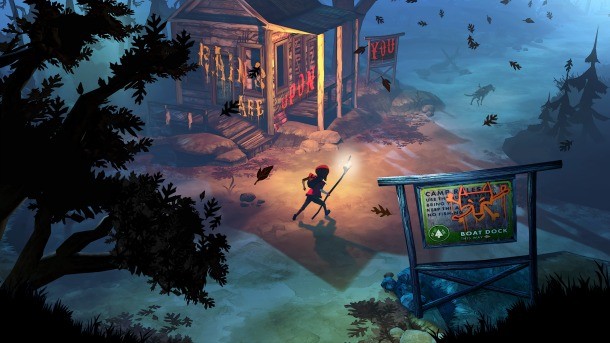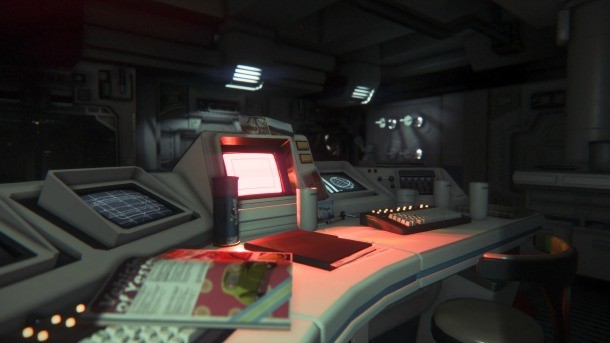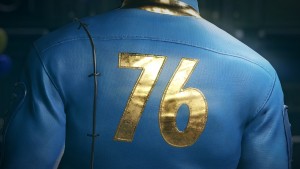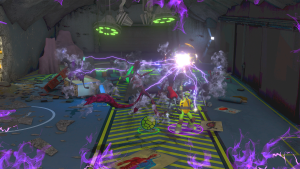Please support Game Informer. Print magazine subscriptions are less than $2 per issue
Opinion – More Games Should Have Great Difficulty Options

One of the cornerstones of the roguelike genre is harshly punishing the player for their failures. Games likes The Binding of Isaac, FTL, and Spelunky can often have you raging at the screen as a simple miscalculation can result in your untimely demise and hours of lost progress, but such losses make those moments of victory, where you triumph over the mighty Olmec or take down the rebel flagship, that much sweeter. However, the trade-off for these sorts of risk/reward systems is that they often end up pushing casual players away from them simply because they find the payoff for the time investment simply isn't worth it. To call this issue a design flaw would be unfair toward those games given that a lot of their appeal ostensibly rests on the player understanding the depths of loss so they can experiences heights of success.
That said, I've often wondered over the past few years if there was a way that developers could make allowances toward players who want to play these difficult games on their own terms without necessarily corrupting the core experiences. Several recently released games have attempted to do just that and have been, for the most part, rather successful.
The Flame in The Flood was released today. It's a roguelike survival game that puts you in the boots of a young woman trying to make her way downriver on a raft with her dog. The trick is surviving the trip, given that everything around you--from predators to pneumonia--is out to kill you and will probably kill you a hundred times. Now in most games that occupy the same genre, this means going back all the way to the beginning and losing everything you earned along the way, and if you're playing the game's endless mode, that's still very much the case. You die. You lose all your stuff. You start from nothing again. Bummer.
However, one of the more interesting bits about The Flame in The Flood is its campaign mode. It's the same as endless mode except for two notable changes: (1) the trip downriver does eventually end, and (2) there are checkpoints. The campaign mode is not only an engaging adventure but it's also a training course for players who want to master all of The Flame in The Flood's mechanics, setting them up for endless mode without making newcomers feel like they're just playing through a short tutorial. It's a balance the game strikes that will likely appease hardcore survival simulator enthusiasts while also being much more welcoming to newcomers than virtually any other roguelike.
The popular roguelike dungeon-crawler hybrid Darkest Dungeon also gave players a major accessibility option in an update back in August 2015. Usually when an enemy falls in battle, they leave a corpse. If enemies are behind that corpse, those corpses have to be damaged and destroyed before melee classes can attack the enemy units hiding behind the dead bodies. A lot of players were not pleased about this and let developer Red Hook Studios know, which eventually resulted in the studio giving players the option to remove corpses from the game as well as heart attacks, another controversial mechanic.

Notoriously difficult games outside of the roguelike genre are also making strides to be more welcoming to players. Fire Emblem: Fates, like Awakening before it, offers a variety of difficulty settings for players who don't want to deal with the game's classic permadeath setting, where every unit lost in battle is just gone forever. In casual mode, units are revived at the end of every battle while the new phoenix mode revives characters immediately, making losing a battle in any of the versions of Fire Emblem: Fates very unlikely, if not flat out impossible.
Such settings, so often forgot about and undervalued, are acts of generosity toward the player that lets them play the game on their own terms. While all these options for Fire Emblem might not mean much to me since I play with permadeath turned on, they could mean the difference between finishing the game and never playing past the first few hours for someone with a hectic schedule, like a new parent or someone working two jobs. The fact that these are all optional also means that the intended design for every one of these games can go untouched and be played in the way the creator(s) meant for them to be experienced.
There could be cause for concern that such options might "break" certain games but for the sake of argument, why is that such a big deal if the player willingly chooses an option that deviates away from the intended experience? For example, it would be considered by many people the highest form of sacrilege for Dark Souls and its ilk to have an optional easy mode. However, those games have so much more going for them than their infamous difficulty, so what what's truly lost by allowing those players the joy of exploring Lordran, Yharnam, and Boletaria at their own pace?
One of my favorite hypothetical games I've ever heard of was born out of a conversation between a few critics back after Alien: Isolation was released. They found Isolation to be a quality game but were disappointed that players wouldn't likely get the chance to explore Sevastopol at their own pace and see all the impressive and detailed work that the game's art and production teams had gone to when making sure it was faithful the original film thanks to the ever-present, deadly Alien (FYI: that's totally a thing you can do now if you have the PC version of the game, thanks to one modder's efforts). In a sense, yes, that breaks the game by removing the primary antagonist. However, it also creates a new kind of experience for the player, letting them take in the horrific and tragic remains of the station and the people who lived there. You can rummage through their belongings, stare at corpses in beds, and examine faded posters, soaking in the melancholy of it all without having to constantly glance over your shoulder.
These sorts of difficulty options don't just have benefits for newcomers but also for devoted players who want to take the time to explore every bit of their favorite games. Fire Emblem's easier settings allow you to experiment with your characters' and see how different romantic partner pairings change bits of the story. While they're not particularly difficult games, both Mass Effect 3 and Dragon Age: Inquisition have casual difficulty settings that make fighting through both games a breeze, letting you explore the branching paths of each game with ease.
Opening up different avenues of experience to players through difficulty options and mutators is admirable. The most notable element of video games, after all, is is their interactivity, so that the adventure a player has is not just the design of the game's creator but also their own individual actions during the course of the game. In the end, what's the harm in giving more agency to players and allowing them to take a more active role in choosing how their experience unfolds?










